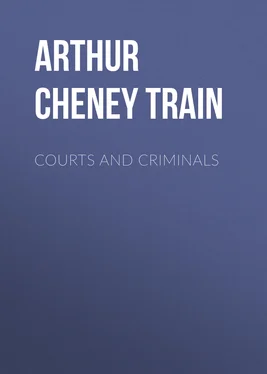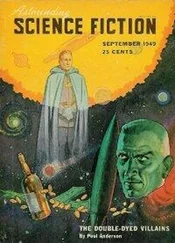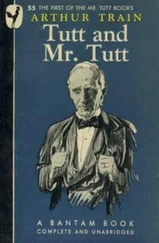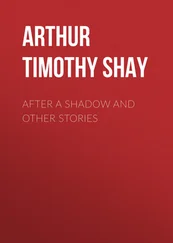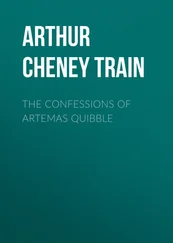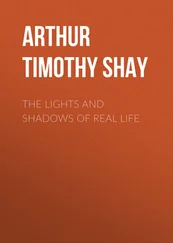Arthur Train - Courts and Criminals
Здесь есть возможность читать онлайн «Arthur Train - Courts and Criminals» — ознакомительный отрывок электронной книги совершенно бесплатно, а после прочтения отрывка купить полную версию. В некоторых случаях можно слушать аудио, скачать через торрент в формате fb2 и присутствует краткое содержание. Жанр: foreign_antique, Юриспруденция, Юриспруденция, на английском языке. Описание произведения, (предисловие) а так же отзывы посетителей доступны на портале библиотеки ЛибКат.
- Название:Courts and Criminals
- Автор:
- Жанр:
- Год:неизвестен
- ISBN:нет данных
- Рейтинг книги:4 / 5. Голосов: 1
-
Избранное:Добавить в избранное
- Отзывы:
-
Ваша оценка:
- 80
- 1
- 2
- 3
- 4
- 5
Courts and Criminals: краткое содержание, описание и аннотация
Предлагаем к чтению аннотацию, описание, краткое содержание или предисловие (зависит от того, что написал сам автор книги «Courts and Criminals»). Если вы не нашли необходимую информацию о книге — напишите в комментариях, мы постараемся отыскать её.
Courts and Criminals — читать онлайн ознакомительный отрывок
Ниже представлен текст книги, разбитый по страницам. Система сохранения места последней прочитанной страницы, позволяет с удобством читать онлайн бесплатно книгу «Courts and Criminals», без необходимости каждый раз заново искать на чём Вы остановились. Поставьте закладку, и сможете в любой момент перейти на страницу, на которой закончили чтение.
Интервал:
Закладка:
When the case against Albert T. Patrick, later convicted of the murder of the aged William M. Rice, was in course of preparation, it was found desirable to show that Patrick had called up his accomplice on the telephone upon the night of the murder. Accordingly, the telephone company was compelled to examine several hundred thousand telephone slips to determine whether or not this had actually occurred. While the fact was established in the affirmative, the company now destroys its slips in order not to have to repeat the performance a second time.
Likewise, in the preparation of the Molineux case it became important to demonstrate that the accused had sent a letter under an assumed name ordering certain remedies. As a result, one of the employees of the patent-medicine company spent several months going over their old mail orders and comparing them with a certain sample, until at last the letter was unearthed. Of course, the district attorney had to pay for it, and it was probably worth what it cost to the prosecution, although Molineux's conviction was reversed by the Court of Appeals and he was acquitted upon his second trial.
The danger is, however, that a prosecutor who has an unlimited amount of money at his disposal may be led into expenditures which are hardly justified simply because he thinks they may help to secure a conviction. Nothing is easier than to waste money in this fashion, and public officials sometimes spend the county's money with considerably more freedom than they would their own under similar circumstances.
The legitimate expenses connected with the preparation of every important case are naturally large. For example, diagrams must be prepared, photographs taken of the place of the crime, witnesses compensated for their time and their expenses paid, and, most important of all, competent experts must be engaged. This leads us to an interesting aspect of the modern jury trial.
When no other defence to homicide is possible the claim of insanity is frequently interposed. Nothing is more confusing to the ordinary juryman than trying to determine the probative value of evidence touching unsoundness of mind, and the application thereto of the legal test of criminal responsibility. In point of fact, juries are hardly to be blamed for this, since the law itself is antiquated and the subject one abounding in difficulty. Unfortunately the opportunity for vague yet damaging testimony on the part of experts, the ease with which any desired opinion can be defended by a slight alteration in the hypothetical facts, and the practical impossibility of exposure, have been seized upon with avidity by a score or more of unscrupulous alienists who are prepared to sell their services to the highest bidder. These men are all the more dangerous because, clever students of mental disease and thorough masters of their subject as they are, they are able by adroit qualifications and skilful evasions to make half-truths seem as convincing as whole ones. They ask and receive large sums for their services, and their dishonest testimony must be met and refuted by the evidence of honest physicians, who, by virtue of their attainments, have a right to demand substantial fees. Even so, newspaper reports of the expense to the State of notorious trials are grossly exaggerated. The entire cost of the first Thaw trial to the County of New York was considerably less than twenty thousand dollars, and the second trial not more than half that amount. To the defence, however, it was a costly matter, as the recent schedules in bankruptcy of the defendant show. Therein it appears that one of his half-dozen counsel still claims as owing to him for his services on the first trial the modest sum of thirty-five thousand dollars. The cost of the whole defence was probably ten times that sum. Most of the money goes to the lawyers, and the experts take the remainder.
It goes without saying that both prosecutor and attorney for the defence must be masters of the subject involved. A trial for poisoning means an exhaustive study not only of analytic chemistry, but of practical medicine on the part of all the lawyers in the case, while a plea of insanity requires that, for the time being, the district attorney shall become an alienist, familiar with every aspect of paranoia, dementia praecox, and all other forms of mania. He must also reduce his knowledge to concrete, workable form, and be able to defeat opposing experts on their own ground. But such knowledge comes only by prayer and fasting—or, perhaps, rather by months of hard and remorseless grind.
The writer once prosecuted a druggist who had, by mistake, filled a prescription for a one-fourth-grain pill of calomel with a one-fourth-grain pill of morphine. The baby for whom the pill was intended died in consequence. The defence was that the prescription had been properly filled, but that the child was the victim of various diseases, from acute gastritis to cerebro-spinal meningitis. In preparation the writer was compelled to spend four hours every evening for a week with three specialists, and became temporarily a minor expert on children's diseases. To-day he is forced to admit that he would not know a case of acute gastritis from one of mumps. But the druggist was convicted.
Yet it is not enough to prepare for the defence you believe the accused is going to interpose. A conscientious preparation means getting ready for any defence he may endeavor to put in. Just as the prudent general has an eye to every possible turn of the battle and has, if he can, re-enforcements on the march, so the prosecutor must be ready for anything, and readiest of all for the unexpected. He must not rest upon the belief that the other side will concede any fact, however clear it may seem. Some cases are lost simply because it never occurs to the district attorney that the accused will deny something which the State has twenty witnesses to prove. The twenty witnesses are, therefore, not summoned on the day of trial, the defendant does deny it, and as it is a case of word against word the accused gets the benefit of the doubt and, perhaps, is acquitted.
No case is properly prepared unless there is in the court-room every witness who knows anything about any aspect of the case. No one can foretell when the unimportant will become the vital. Most cases turn on an unconsidered point. A prosecutor once lost what seemed to him the clearest sort of a case. When it was all over, and the defendant had passed out of the courtroom rejoicing, he turned to the foreman and asked the reason for the verdict.
"Did you hear your chief witness say he was a carpenter?" inquired the foreman.
"Why, certainly," answered the district attorney,—
"Did you hear me ask him what he paid for that ready-made pine door he claimed to be working on when he saw the assault?"
The prosecutor recalled the incident and nodded.
"Well, he said ten dollars—and I knew he was a liar. A door like that don't cost but four-fifty!"
It is, perhaps, too much to require a knowledge of carpentry on the part of a lawyer trying an assault case. Yet the juror was undoubtedly right in his deduction.
In a case where insanity is the defence, the State must dig up and have at hand every person it can find who knew the accused at any period of his career. He will probably claim that in his youth he was kicked in a game of foot-ball and fractured his skull, that later he fell into an elevator shaft and had concussion of the brain, or that he was hit on the head by a burglar. It is usually difficult, if not impossible, to disprove such assertions, but the prosecutor must be ready, if he can, to show that foot-ball was not invented until after the defendant had attained maturity, that it was some other man who fell down the elevator shaft, and to produce the burglar to deny that the assault occurred. Naturally, complete preparation for an important trial demands the presence of many witnesses who ultimately are not needed and who are never called. Probably in most such cases about half the witnesses do not testify at all. Most of what has been said relates to the preparation for trial of cases where the accused is already under arrest when the district attorney is called into the case. If this stage has not been reached the prosecutor may well be called upon to exercise some of the functions of a detective in the first instance.
Читать дальшеИнтервал:
Закладка:
Похожие книги на «Courts and Criminals»
Представляем Вашему вниманию похожие книги на «Courts and Criminals» списком для выбора. Мы отобрали схожую по названию и смыслу литературу в надежде предоставить читателям больше вариантов отыскать новые, интересные, ещё непрочитанные произведения.
Обсуждение, отзывы о книге «Courts and Criminals» и просто собственные мнения читателей. Оставьте ваши комментарии, напишите, что Вы думаете о произведении, его смысле или главных героях. Укажите что конкретно понравилось, а что нет, и почему Вы так считаете.
